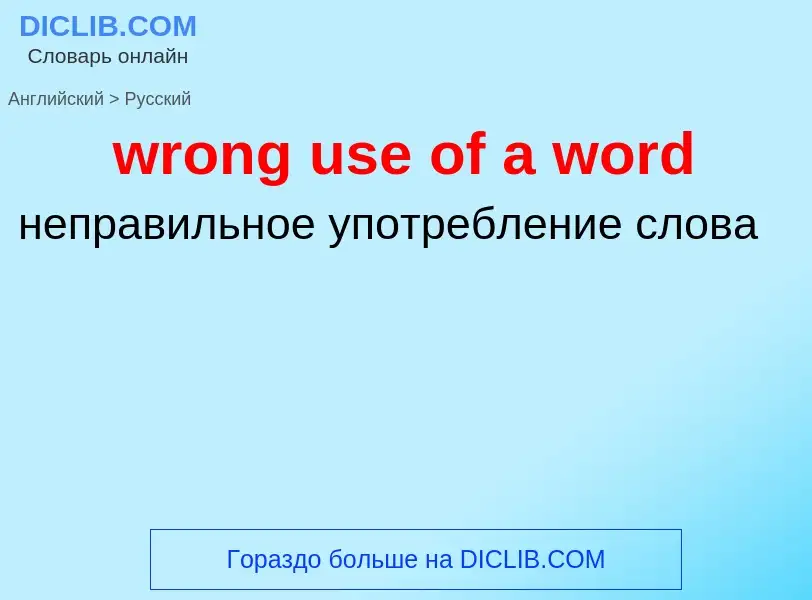Traducción y análisis de palabras por inteligencia artificial ChatGPT
En esta página puede obtener un análisis detallado de una palabra o frase, producido utilizando la mejor tecnología de inteligencia artificial hasta la fecha:
- cómo se usa la palabra
- frecuencia de uso
- se utiliza con más frecuencia en el habla oral o escrita
- opciones de traducción
- ejemplos de uso (varias frases con traducción)
- etimología
wrong use of a word - traducción al ruso
общая лексика
размер слова
определяется архитектурой процессора. Термин чаще всего ссылается на число разрядов, которое может одновременно передаваться по шине данных или храниться и обрабатываться в регистрах процессора. Обычно это 8, 16, 32 или 64 разряда. В ЭВМ первого и второго поколения, когда не было понятия байта, термин буквально относился к длине машинного слова
Definición
Wikipedia
The use–mention distinction is a foundational concept of analytic philosophy, according to which it is necessary to make a distinction between using a word (or phrase) and mentioning it. Many philosophical works have been "vitiated by a failure to distinguish use and mention". The distinction can sometimes be pedantic, especially in simple cases where it is obvious.
The distinction between use and mention can be illustrated with the word cheese:
- Use: Cheese is derived from milk.
- Mention: "Cheese" is derived from (the Anglian variant of) the Old English word ċēse (pronounced [ˈt͡ʃeː.se]).
The first sentence is a statement about the substance called "cheese": it uses the word "cheese" to refer to that substance. The second is a statement about the word "cheese" as a signifier: it mentions the word without using it to refer to anything other than itself. Note the quotation marks.

